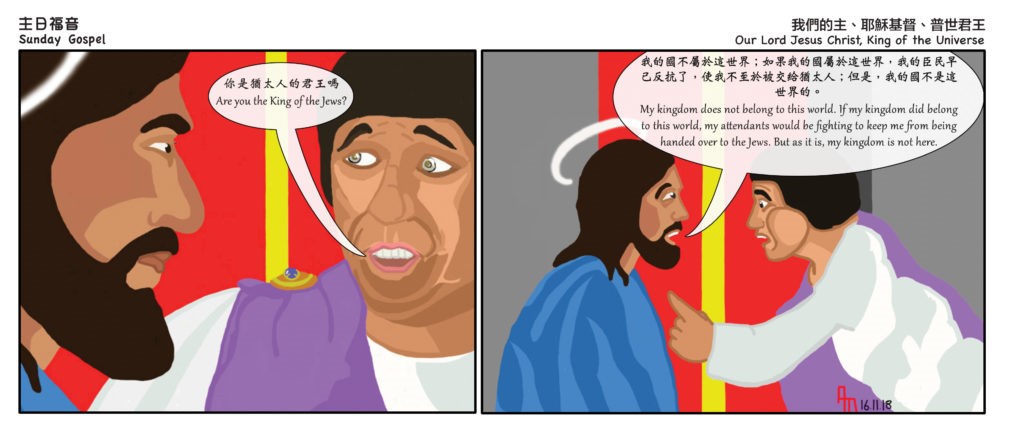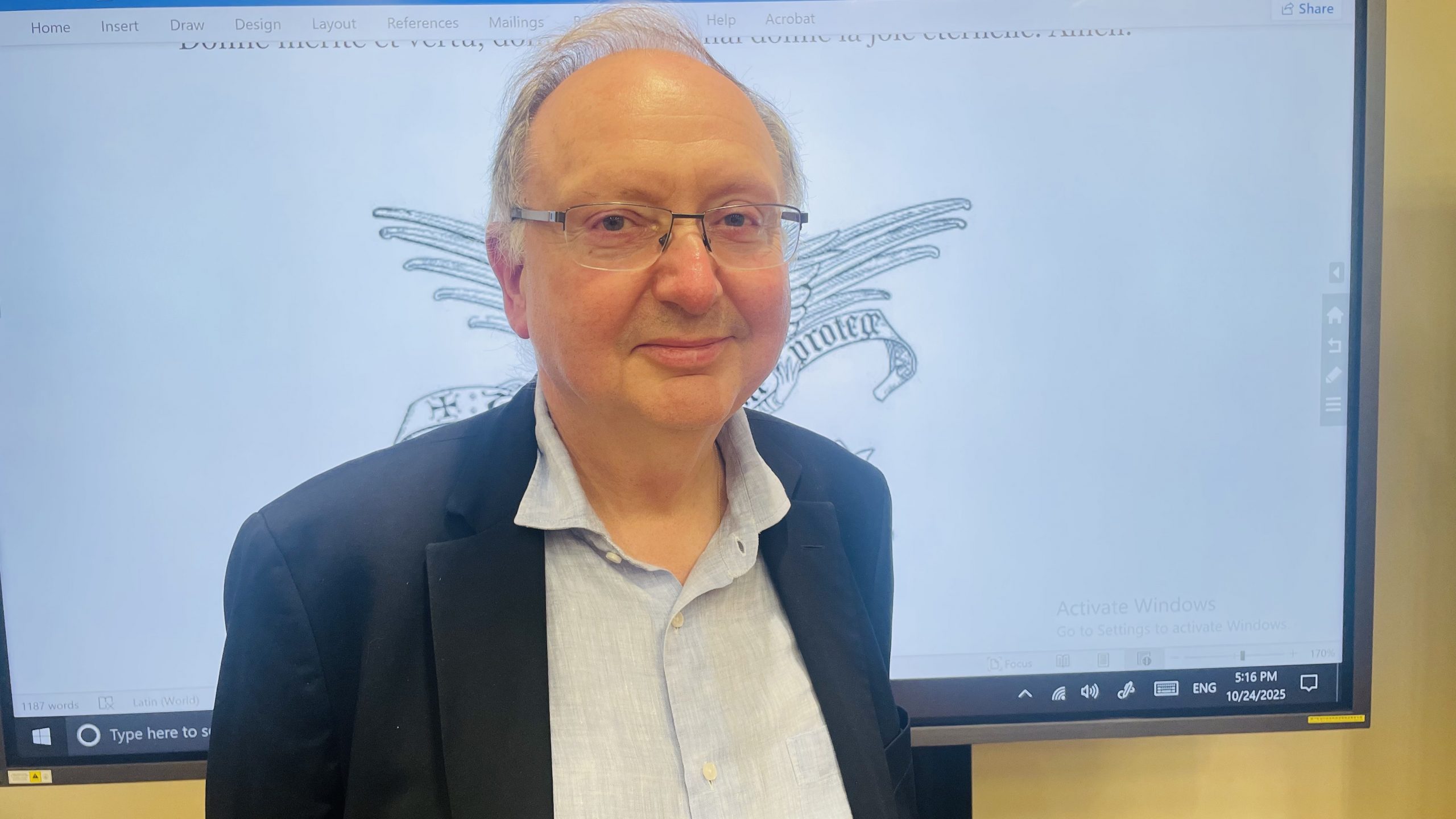DAN 7:13-14; REV 1:5-8; JN 18:33-37
– Paul Yeung
We are all like Pilate: we do not understand Christ and His Kingship. So often when we are faced with the many trials and sufferings, or when we are confused by what are happening in this world, we turn to God only to challenge Him, to question Him why things have happened the way they have. We simply do not understand the way of the Lord. We have missed the point and used worldly logic to interrogate the real King of kings. In doing so, we are no different from Pilate.
Let’s make no mistake: Christ’s kingship and His kingdom are established not through violence or earthly powers, but through overcoming sins and death at a pricey cost of a shameful death on the Cross, for you and for me. He has “re-established” His kingdom on earth by His own blood, and we are called to defend and extend this kingdom (His Church and the truth) using His way and not the human way.
“I came into this world to testify to the truth. Everyone who belongs to the truth listens to my voice.” (John 18:37)
We need to challenge our human understanding and the distorted views presented to us by the world. We are called to stand by the truth and declare war on the evil, even when it means immense sufferings and many forms of persecutions.
In Chinese, there is a proverb that says 風雨同路 “As companions along the same path, let’s brave the stormy weather together” which has a dual meaning for Christ’s followers. It is God telling us that the earthly journey for us is indeed a stormy one, yet He has also promised to be with us “always until the end of time” (Matthew 28:20). The conflicts between His Kingdom and the earthly powers will continue until He comes again. The final triumph and the true kingship belong to Him and we are to share His glory if we persevere and walk with Him till the end. As He has not deserted us the sinners, let us not make Pilate’s mistake and desert Christ the real king of our lives.
Brothers and sisters, hang in there! As the turmoil, terrors and persecutions of this world continue to haunt us, let us not deviate from His path but stick with this Christ the King who will lead us to the final victory!
The Triumph of the Defeated
– Fr Fernando Armellini SCJ
Claretian Publications, Macau
The Jews had a gut-hatred towards the foreign rule of the Romans who had been ruling over Israel for years. There were unsuccessful attempts to overthrow them. The dialogue on kingship that elapsed between Jesus and Pilate is placed in this historical context. The first question of the prosecutor—“Are you the king of the Jews?”—aims to point out the charge and reveals the perplexity of Pilate who finds himself in front of a man, unarmed, with no soldiers to defend him, abandoned by his own friends and slapped by a servant Annas. He does not seem the kind that can endanger the power of Rome.
Jesus responds with a counter question, to force the prosecutor to take responsibility, “Does this word come from you, or did you hear it from others?” That is, do you have any reason to call me seditious, or are you paying attention to gossips?
Pilate’s reply is almost resentful: “Am I a Jew?” That is: I am a Roman official and I administer justice in an autonomous way. He continues: “Your own nation and the chief priests have handed you over to me; what have you done?” It is at this point that the theme of the kingship of Christ comes alive.
Jesus tries to help the procurator to understand: “My kingship does not come from this world.” Pilate knows only the kingdoms of this world. They are run by men moved by ambition. They base themselves on the use of force and money, and are defended by force of arms. But for the Kingdom of Jesus force and money are signs of weakness and defeat. For him great is he who serves.
At the end of the trial and punishment, Pilate put an inscription in three languages: Hebrew, Latin and Greek, to be read and understood by all: “Jesus the Nazorean, the King of the Jews.”
Without realizing it, the representative of the most powerful kingdom of this world officially recognized the kingship of Jesus. When the chief priests protested and asked him to have it rectified, he said that the statement was irreversible: “What I have written, I have written.” He, the depositary of the authority of the emperor, could not change it.
The victory of the vanquished had begun with their king lifted up on the cross. No kingdom of this world was now more able to halt the advance.
This was the big surprise of God.


 Follow
Follow


